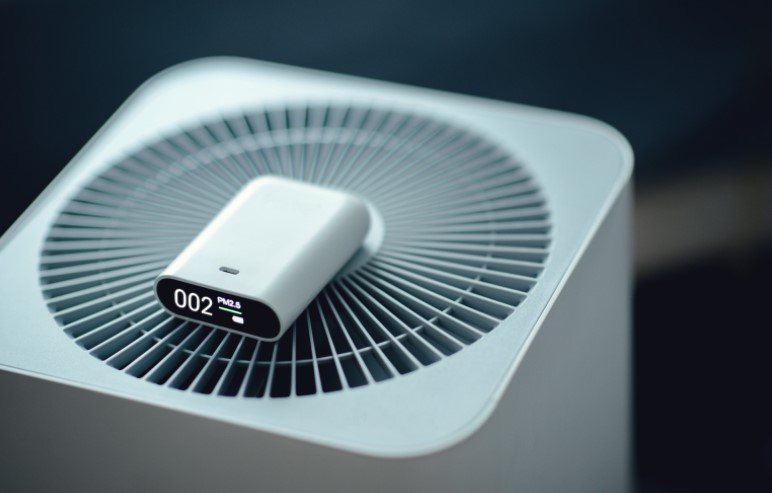
You may not realize this, but your home might be making you sick.
Research has shown that indoor air pollution is a significant health risk, especially in urban neighborhoods.
The pollutants in our homes are often invisible and odorless, making them difficult to identify. And they can come from a variety of sources—everything from dust mites to molds, paints, or cleaning products that contain volatile organic compounds (VOCs).
Studies have also linked poor indoor air quality exposure with an increased risk of respiratory problems such as asthma or chronic obstructive pulmonary disease (COPD), cardiovascular diseases like heart attacks and strokes, and even cancer. Fortunately, there are simple things you can do to improve the air quality in your home, especially if you live in a city apartment.
Clean your home’s air with a HEPA filter
One of the best ways to improve the air quality in your home is to use a HEPA filter. A HEPA filter is a type of air purifier that removes 99.97% of all airborne particles, including allergens, dust, smoke, and pet dander.
HEPA filters are available for both central heating and cooling systems and portable units that can be used in individual rooms, making them ideal for apartments.
If you have allergies or asthma, it’s imperative to have a HEPA filter in your home, as these devices can help reduce your exposure to allergens and other respiratory irritants.
Get rid of pet dander and other allergens by vacuuming often
One of the best ways to reduce exposure to allergens and other respiratory irritants is to vacuum often. Vacuuming can help remove pet dander, dust mites, and other allergens from your home.
It’s important to vacuum every room in your house, especially the bedroom and living room, where you spend the most time. Be sure to vacuum under furniture and beds and in corners and along baseboards.
You can also use a vacuum cleaner with a HEPA filter to remove even more allergens from your home.
Keep the temperature cool so that mold, mildew, and bacteria don’t grow easily
One of the best ways to reduce exposure to allergens and other respiratory irritants is to keep the temperature cool. This will help to prevent mold, mildew, and bacteria from growing as easily.
It’s important to keep the temperature in your home low, especially in areas with a lot of moisture. You may also want to use an air conditioner or a dehumidifier to keep low humidity levels.
Furthermore, cleaning or ensuring your AC is working properly is crucial. This is because your AC could be the primary source of allergens and other pollutants in your home, so if it’s not working properly, this could significantly increase your exposure to these substances. Regularly check if your AC needs repair or clean its filter often.
Open windows when you can to let in fresh air from outside, but be careful not to let bugs inside
Opening windows to let fresh air in is a great way to improve the air quality in your home. Not only does it allow you to get rid of any stale air, but it also allows you to breathe in fresh, clean air.
However, you need to be careful not to let bugs inside your apartment when you open the windows. You can do this by using screens on the windows or installing window guards.
Check your apartment vents
One of the best ways to improve the air quality in your home is to check your apartment vents. If they’re blocked or dusty, they can reduce airflow and lead to poor air quality.
You can clean your apartment vents by using a vacuum cleaner with a dust attachment or a damp cloth to wipe them down. Be sure to clean the vents in every room in your house, especially the bedroom and living room, where you spend the most time.
If your apartment vents are blocked in a place you can’t reach, bring it up with your landlord so that they can check it out.
Be careful when using air fresheners or scented candles
Many air fresheners and candles contain chemicals that can release harmful toxins into the air. These chemicals can cause respiratory problems and other health issues, such as headaches, dizziness, and nausea.
It’s important to be aware of the risks of using air fresheners and candles, especially if you have asthma or allergies. Try to avoid products that contain synthetic fragrances, as these are known to be particularly harmful.
Furthermore, because an apartment is a smaller, enclosed space, any chemicals released into the room will have a greater impact.
Instead, opt for natural alternatives such as essential oils or beeswax candles. These products are safer for your health and won’t release any harmful toxins into the air.
So, if you’re looking to improve the air quality in your apartment, follow these tips. By cleaning your apartment vents, replacing carpets with hardwood floors or linoleum, and opening windows when you can, you can make your home a healthier place to live.




